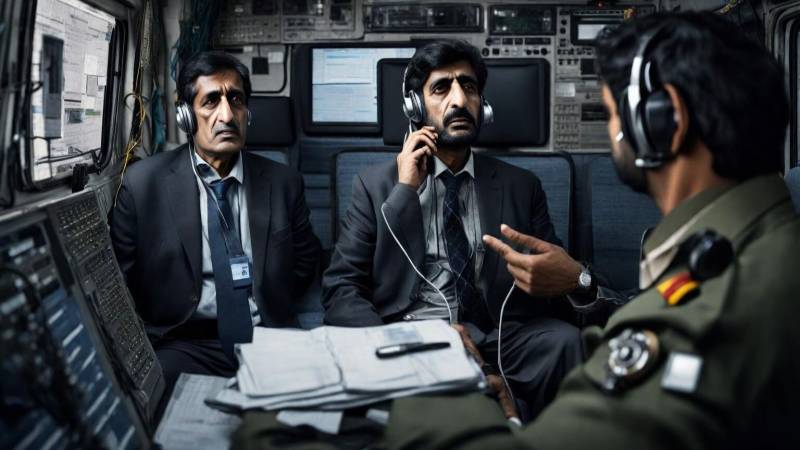
In a surprising development, one of the highest public offices in the country has stated that it maintains an "arms-length" relationship with the country's intelligence services even though some of these services are supposed to directly report to it, adding that it does not interfere in the day to day activities of these agencies, including the interception and recording of phone calls.
This was contained in a written reply submitted by the Prime Minister's Office (PMO) to the Islamabad High Court (IHC) on Monday.
"As regards to the query regarding identifying the entities and agencies that have the requisite technological capability to record telephone calls and/or surveil telecommunication, it is humbly submitted that the Prime Minister's Office does not interfere with the sensitive day-to-day working of intelligence agencies," stated the reply submitted by the Principal Secretary to the Prime Minister in the PMOs official response.
The response was filed after the IHC had issued notices in response to a case filed by Najamus Saqib, the son of former chief justice of Pakistan Saqib Nisar, over leaked audio of his alleged telephonic conversation wherein he sought a "reward" from a Pakistan Tehreek-e-Insaf (PTI) leader for securing a party ticket for the leader to contest the Punjab provincial elections. Najam had approached the IHC to challenge the National Assembly committee tasked with investigating the purported audio leak.
At the last hearing of the case, IHC's Justice Babar Sattar had directed the government to inform it about the elements which record telephonic and other conversations. The government submitted a three-page written reply on Monday.
"Being a political-cum-administrative office, the Prime Minister's Office keeps an arms-length relationship, and does not interfere into key functions of the premier intelligence agencies," the PMO's reply further stated.
It maintained that the Prime Minister's Office expects the country's intelligence agencies to work under the Constitution and the law of the land and in the public interest.
The PM Office declined to provide details of the operations and working of intelligence agencies in a public document, citing national security concerns.
Regarding the identification of the legal mechanism to seek permissions and authorisations for recording telephone conversations, the reply referred to various laws which govern various aspects of this mechanism. It pointed to the investigation mechanism contained in the Fair Trial Act, 2013, to obtain permission for the recording of telephone conversations between citizens and any safeguards adopted to ensure that to the extent that any phone calls are permitted by law to be recorded, and their confidentiality is preserved and any such recording is not leaked or used for extraneous purposes.
"The Telegraph Act, 1885 also provides a mechanism whereby possession of licenced telegraphs and interception of messages can be ordered by the federal/provincial government."
"PECA, 2016 and Prevention of Electronic Crimes Investigation Rules 2018 also contain a mechanism and safeguards for preservation of the confidentiality of the data/record obtained."
The reply added that recordings of telephonic conversations are within the
knowledge of the federal government as it has constituted a high-powered commission of inquiry, comprising senior judges, to inquire into the authenticity of audio conversations that have been released or leaked.
With regards to the cyber security breach of the Prime Minister's Office/House, when an alleged audio of former prime minister Imran Khan and then an audio of former prime minister Shehbaz Sharif were leaked, a high-powered committee was constituted by the Prime Minister in September 2022 to oversee investigations into the breach and to suggest measures to secure the cyberspace and to ensure electronic security of public offices of strategic importance.
An inquiry commission was also constituted on May 19, 2023, to probe the veracity of alleged audio leaks of senior serving judges, raising serious apprehensions about the independence of the judiciary.
"Inquiry Commission is led by Justice Qazi Faez Isa and comprises Justice Naeem Akhtar Afghan, Chief Justice Balochistan High Court and Justice Aamer Farooq, Chief Justice Islamabad High Court," the reply stated, without elaborating how the commission was disbanded by former chief justice Umar Ata Bandial.
It is pertinent to note here that Pakistan's 'Watergate' moment came when the second government of slain prime minister Benazir Bhutto was accused of bugging the phones of judges of the superior judiciary, the opposition, senior civil and military leaders. Later it was revealed that thousands of people had their phones bugged withe the practice continuing at various points in time.

